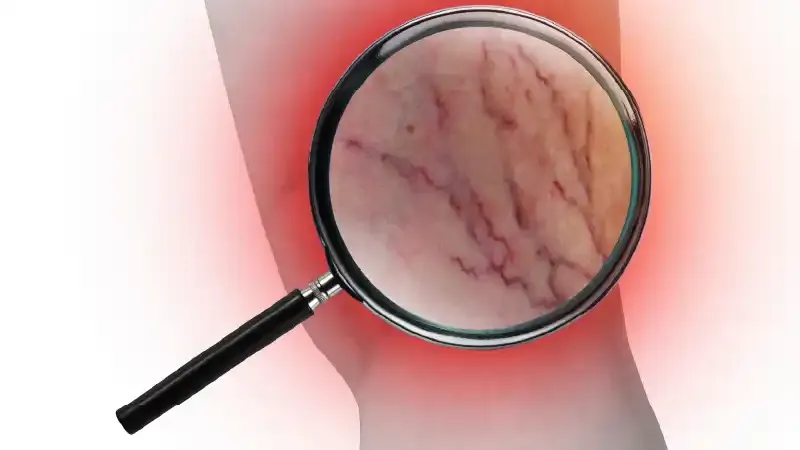All About Microvascular Ischemic Disease: Signs and Treatments
Comprehensive Guide to Microvascular Ischemic Disease
It is a brain condition common in elderly patients. If it is not treated, microvascular ischemic disease can lead to dementia and stroke and cause difficulty walking. The treatment usually consists of reducing or controlling risk factors such as high blood pressure, high cholesterol levels, high sugar levels in the blood, and smoking. Let's discuss: what are chronic ischemic changes?
Microvascular Ischemic Disease
Microvascular ischemic disease is an overarching term that characterises various changes in your brain's small blood vessels. The number of these alterations can result in problems ranging from lack of concentration to a stroke.
Microvascular ischemic disease is called:
- Cerebral small vessel disease (CSVD)
- Chronic microvascular ischemic disease
- Small vessel ischemic disease
Also Read: Xylitol And Heart Disease
Causes of Microvascular Ischemic Disease
Age is the major risk factor for microvascular ischemic brain disease. A 2019 review found that the condition affected approximately 5% of individuals aged 50, increasing to nearly 100% among those over 90.
Some other risk factors for microvascular ischemic brain disease are:
- diabetes
- high blood pressure
- high cholesterol
- inflammation of the blood vessels from infection oran overactive immune system
- radiation exposure
- Smoking
It remains unidentified precisely what causes microvascular ischemic brain disease or chronic microangiopathic ischemic changes, as so many different mechanisms may have an impact on blood vessels in the brain.
For example, plaque, fatty tissue, or scar tissue can grow inside arteries, partly or completely blocking the flow of blood to the brain.
If there is not adequate blood flow, some areas of the brain tissue may not get sufficient oxygen, causing tissue death or an ischemic stroke.
Symptoms of Microvascular Ischemic Disease
Microvascular ischemic disease can thus be mild, moderate, or severe.
Many older adults — particularly those with a mild variant of the disease don't have symptoms, despite there being areas of damage in the brain. This condition is often referred to as “silent” disease.
In a study conducted, up to 20 per cent of healthy elderly people had silent damage in their brains, most of which came as a result of small vessel disease.
This might mean that you do not realize anything is wrong, but small changes in your thinking and physical abilities may be happening. Minimal chronic ischemic changes refer to slow, ongoing damage to the brain’s small blood vessels. These changes are often associated with aging, high blood pressure, or diabetes and may cause subtle symptoms such as mild cognitive changes, balance issues, or weakness.
Also Read: Non Alcoholic Fatty Liver Disease
More severe small vessel disease may have such symptoms as:
- loss of thinking skills, including cognitive impairment
- problems walking and with balance
- Depression
Stroke caused by small vessel disease can exhibit the following symptoms:
- sudden confusion
- vision loss in one eye or both eyes
- numbness or weakness, especially on one side of the body,
- trouble speaking or understanding
- dizziness and
- loss of balance or coordination.
- Suddenly, a severe headache
Treatment of Microvascular Ischemic Disease
Microvascular ischemic brain disease affects the small-sized blood vessels that are less than 0.5 millimetres in diameter. Hence, this condition is challenging to find and treat with surgical interventions.
One 2015 article describes these treatment options in detail below to reduce stroke risk, cognitive decline, and physical disabilities. A doctor may prescribe one or more of the following treatment strategies based on the person's risk factors:
- managing cholesterol levels
- control of blood sugar if diabetes is present
- quitting smoking
- Regular exercise and Dietary changes to help a person reach or maintain a moderate weight
- Antihypertensive medications to prevent stroke
Also Read: Fatty Liver Disease
Prevention of Microvascular Ischemic Disease
The following will help you safeguard the tiny blood vessels in the brain and avoid a stroke:
- If you are obese, discuss control strategies with your doctor and dietitian on how to achieve an appropriately healthy weight.
- Adhere to a healthy dietary pattern, like the Mediterranean Diet or DASH, which comprises nutrient-dense foods and is low in added sugar, sodium, and saturated fat.
- For an individual who smokes, choose a quit-smoking method that is best for you. You may consider counselling, nicotine replacement products, and medicines to help you lower the urge to smoke.
- Know your cholesterol, blood pressure and blood pressure levels. If they are out of range, work with the doctor to bring them back into range.
- Exercise for 30 minutes at least, for a minimum of five days a week.
- Avoid or limit alcohol.
- Based on the individual's needs, they can consult with the doctor with a more personalised approach.
Conclusion
Microvascular ischemic disease is the term used to describe changes in the small blood vessels in the brain. Damage to these vessels can cause damage to white matter—the tissue of the brain that contains the nerve fibres and serves as the connection point to the other parts of the brain.
HELP CENTRE
Confused? We’ve got the answers
We’re Star Health. We offer the coverage that’s designed to help keep you healthy. It's the care that comes to you, and stays with you.
Related Health Info Links
ABHA Card Related Topics
Health Insurance Coverage for pre-existing medical conditions is subject to underwriting review and may involve additional requirements, loadings, or exclusions. Please disclose your medical history in the proposal form for a personalised assessment.
Information on this Health Information page is for educational purposes and not medical advice. Consult a healthcare professional for any health issues and rely on their guidance for diagnosis and treatment. T & C apply. For further detailed information or inquiries, feel free to reach out via email at marketing.d2c@starhealth.in
